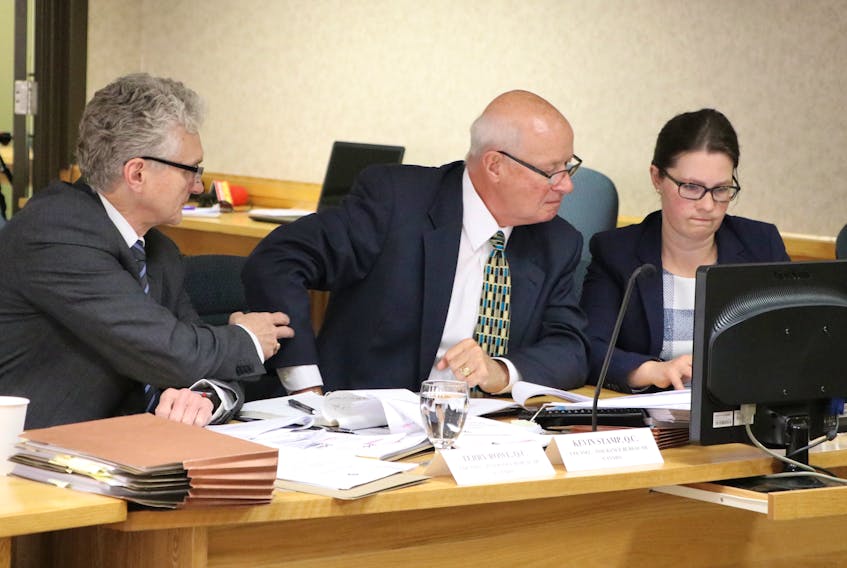You might say “right church, wrong pew” to describe the current situation at the Public Utilities Board.
But the truth is, it’s looking like it might be the wrong church as well.
That’s just about the only thing you can draw from the board’s surprising statement this week about what it would not be addressing in the recommendations it makes to the provincial government.
But let’s back up a bit first.
In the lead-up to the PUB’s review of automobile insurance, the lines of conflict had been clearly drawn.
Insurance companies had argued that this province needs caps on minor injury compensation, saying that putting a cap in place would “reduce and stabilize premiums” because Newfoundland and Labrador, they argue, has the highest level of claims costs in the Atlantic region.
Most observers thought that the battle over the cap would be fought during the current hearings, and that the PUB would render recommendations on whether a cap should be put in place.
Others, including a group of personal injury lawyers who have organized the Campaign to Protect Accident Victims, argue the caps are the wrong route to take.
The lawyers argue that car accidents are down, personal injury claims aren’t growing enough to be responsible for insurance premium increases, and the focus should be on cutting overhead costs and looking at the area where insurance costs have increased the most: on vehicle replacement and repair under collision and comprehensive insurance coverage.
A cap, they argue, would merely take away the average accident victim’s right to sue for their pain and suffering.
Most observers thought that the battle over the cap would be fought during the current hearings, and that the PUB would render recommendations on whether a cap should be put in place.
Tuesday, the board itself begged to differ. Its own interpretation of the terms of reference is that the board is supposed to review and research the positions, but not actually make a recommendation on a cap.
That, PUB chair Darlene Whalen said, would be a decision that will be made by government.
“It will then be up to government as to how they wish to use the information contained in our final report and whatever changes it contemplates for the automobile insurance product in this province. This may or may not include the introduction of a monetary cap for compensation for pain and suffering, retention of the current deductible scheme or some other framework,” Whalen said.
“I expect our report will be but one consideration in final public policy decisions to be made by government.”
It clearly surprised those who thought the cap battle would be settled by the board. Even after Whalen’s statement, Jerome Kennedy, the lawyer speaking for the personal injury lawyers, argued that the board’s terms of reference included making a recommendation on caps.
Whalen didn’t seem interested in that argument: “Well, thank you for raising it, but we’re clear on what our job is, Mr. Kennedy,” she replied.
Interesting days ahead.









